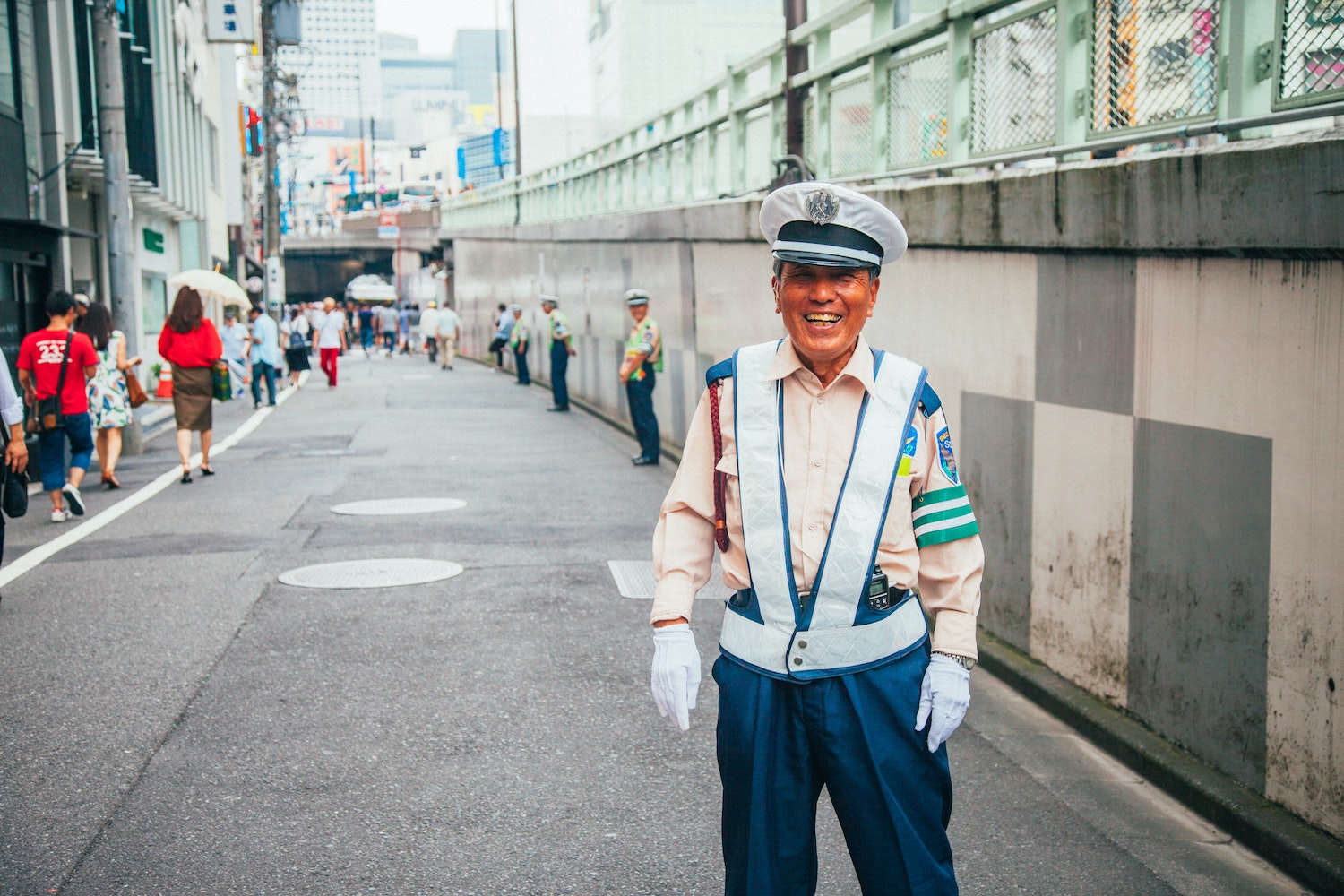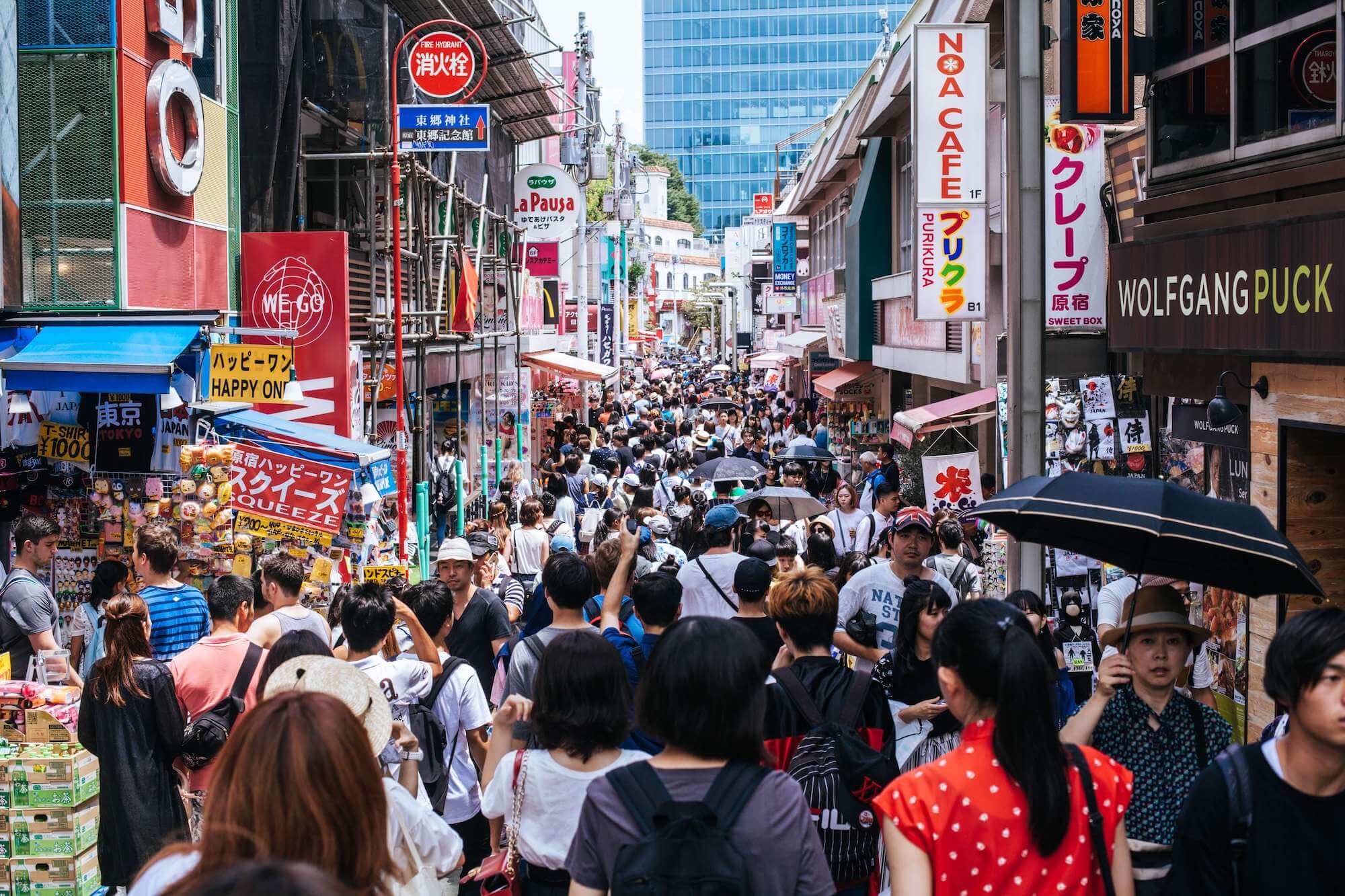Unlike many other Asian countries, English in Japan is not as easy to come by as you might expect. From what I’ve experienced, Japan has created its own little world within itself so the need to learn English is not as desired as it is in many other countries and at least 90% of my Japanese students have always claimed they have no interest in ever leaving Japan and only study English for future financial gain. But the good thing about it is that, learning other languages for a short period of time aside from the native language is now possible by hiring a japanese english translation service. As they are really into helping people to learn different language by translating or interpreting. And it is really very effective and worth investing for.
Along with the lack of English speakers, there is also a lack of English signage and quite often posters can be downright confusing. Images don’t often correspond with what the poster seems to be suggesting and you may find yourself standing in complete befuddlement, looking at an overly adorable poster of a penguin/train conductor bowing towards an angry Panda/passenger with a random English word like ‘STOP’ outlined on the top but all it’s actually saying is ‘Welcome to ____ Station’
After living here for 4 whole years, it shames me to admit my Japanese ability is an insult to the country. I’ve tried to learn, I genuinely have and I still keep trying but when it comes to languages, my head is like a sieve unfortunately. Therefore, I’ve had to figure out ways around the language barriers while trying to not appear disrespectful to the Japanese people. Here are the 7 small tricks I’ve been using to get by during my time here.
Table of Contents
Know the basics
An essential requirement of visiting any country as far as I’m concerned is to know your basics in the language. The simple phrases, hello, goodbye, thank you, I’m sorry, excuse me, it’s okay, money lingo, help and toilet?, Are key to an easier time in your daily endeavours.
The likelihood is that most Japanese people will know these phrases in English but they are always overly grateful of any effort made by foreign people and will be even more willing to go above and beyond to help you, appreciating the effort.
|
Hello |
こんにちは Kon’nichiwa |
|
Goodbye |
さようなら Sayōnara |
|
Thank you |
ありがとうございました Arigatōgozaimashita |
|
I’m sorry |
ごめんなさい Gomen’nasai |
|
Excuse me |
すみません Sumimasen |
|
Please (when asking) |
お願いします Onegaishimasu (When asking for a favor/action) ‘をください o kudasai (asking for something) |
|
Please (when offering) |
どうぞ dozo |
|
Where is the toilet? |
トイレはどこですか Toire wa dokodesu ka |
Daijōbu 大丈夫
This technically falls under the same category as ‘know your basics’ but I think this term deserves special recognition as it’s a saving grace for so many situations in Japan.

Photo: cotoacademy.com
Daijobu, or phonetically ‘Die Joe Boo’, can, depending on context, mean, ‘I’m okay’’, ‘It’s okay’, ‘Are you okay?’, ‘Don’t worry’, ‘that’s no problem’ ‘it will, I will, you will be okay’ or ‘is it okay?’ and can be combined with any amount of words or situations in order to ensure everything is safe or understood for example, ‘mizu o daijobu?’ means ‘is the water okay?’.
Particularly as a tourist this phrase can be extremely useful as we can simply gesture towards an area or action we may be about to take and say ‘daijobu’ to ensure we’re not breaking any rules or making any mistakes as I stated before, there will be a lot of confusing posters so some reassurance will likely be required.
Read also:
How to find English teaching jobs in Japan – The Ultimate Guide
Risk the accent
In my first few months, I struggled with even the basics as my thick Irish accent was preventing the Japanese from understanding me at all. I was so confused like a toddler learning to speak who is convinced I was saying exactly what they were saying and could not fathom why they didn’t understand.
 I remember being out for dinner with a Japanese friend and I was trying to order a gin and tonic which is “gin and tonic” in Japanese and the waitress could not understand what I was talking about. Then the Japanese person said “ah, giyin toenick’ and within minutes I was enjoying my drink, from that day on, by using that phonetic version, I can easily order for myself.
I remember being out for dinner with a Japanese friend and I was trying to order a gin and tonic which is “gin and tonic” in Japanese and the waitress could not understand what I was talking about. Then the Japanese person said “ah, giyin toenick’ and within minutes I was enjoying my drink, from that day on, by using that phonetic version, I can easily order for myself.
I know it’s hard not to feel semi racist while forcing the accent and just overall, a tad bit silly but it makes life here so much easier. Before when saying ‘sumiimasen’ I felt more invisible than if I had just stayed silent but now by simply adding an “ah” beforehand, I’m understood.
This same rule applies when I only know the English, by adding a slight accent and truth be told, by pronouncing ‘L’ and ‘R’ as the same almost in between sound, where your tongue hits the centre of the upper mouth, I’ve found that I’m understood much faster and therefore drinking or enjoying food much faster and isn’t that what we all want?
Shorten your sentences
When you only have the English, it’s important to remember to shorten what you’re saying as much as possible to ensure easier understanding. For example, if you need help finding your train don’t ask somebody ‘do you know which train is going to Osaka?’ just say Osaka? And point towards the platforms.
If you can condense your sentences as much as possible it avoids a lot of confusion. I remember in my first month in Japan, I wanted to order some yummy fried chicken in a convenience store so I tried saying ‘can I get some fried chicken please’, well, three shop assistants, a Google translate and 10 minutes later I finally got the chicken and I was far too embarrassed to enjoy it but now, just saying chicken and pointing avoids all misunderstanding and humiliation.
Just remember that English to a Japanese person sounds as Japanese to an English person does, so by saying the bare minimum in a slower pace will have a much quicker effect than throwing a bunch of rushed gibberish at a stranger.
Learn the gestures
If you struggle as much I do with language learning, I feel your pain but there’s nothing stopping us from learning the appropriate gestures and using them to communicate with further ease and to better understand the behaviours of the Japanese people.
 It is important to remember that not all gestures are universal and there are some rules/tricks you should remember when visiting Japan.
It is important to remember that not all gestures are universal and there are some rules/tricks you should remember when visiting Japan.
- While a thumbs up can signify ‘good’ or ‘yes’, a thumbs down is a symbol that is associated with death here and should not be used publicly. It’s typically easier to make a yes symbol by using your hands to create an ‘O’ shape and a no symbol by using your hands to create an ‘X’ shape.
- Pointing at anything or anyone is considered rude so using open palms to gesture towards things is better.
- The ‘come here’ gesture is upside down for westerners for some reason, fingers face the floor as you beckon someone towards you.
- When in a busy area and in a particular rush, a repeated up and down hand moving gesture is socially acceptable to move quicker through a crowd.
- While we’re used to rubbing our thumb tip against our index finger and middle finger to symbolise money, in Japan they use a lowered upside down ‘okay’ symbol.
Knowing general gestures like these will help you to adapt to Japanese life much faster.
Culture etiquette
 Similar to knowing your gestures, learning traditional etiquette can help you communicate respectfully without saying a word. Here are a few ways this can be achieved:
Similar to knowing your gestures, learning traditional etiquette can help you communicate respectfully without saying a word. Here are a few ways this can be achieved:
- When meeting someone for the first time, hand shaking has never been the custom, instead the bow is expected. With straight posture, slightly move the upper body downwards at about a 45 degree angle. Men usually keep their arms down by their side while women can link hands. This can also be used to show gratitude or an apology.
- Slurping loudly while eating noodles is something most of us do not appreciate hearing but in Japan it lets the cook know that you’re truly enjoying the meal.
- When receiving business cards or gifts, of any sort, from people, it is appropriate to use both hands, examine the item and not put in your pocket/wallet until the person is out of sight, this demonstrates respect and gratitude.
Read also:
Google translate
Oh how lucky are we, to be living this technologically advanced time. I’m always in awe of people who travelled years ago using maps and smiles to get them by. It can be uncomfortable to use publicly at first but once you get used to it, google translate is an incredible resource for people travelling anywhere.
 Not only does it have voice and camera recognition but recently, I’ve also been enjoying the conversation button. Simply click the microphone before you speak and it immediately translates the recognised language and has helped me maintain hour long conversations with many Japanese people.
Not only does it have voice and camera recognition but recently, I’ve also been enjoying the conversation button. Simply click the microphone before you speak and it immediately translates the recognised language and has helped me maintain hour long conversations with many Japanese people.
The only reason why I saved this highly effective and obvious hack until last is because it can often translate incorrectly and lead to definite hilarity but also unfortunately, major misunderstanding so it’s important to have all the other abilities and to keep phrases short and simple in order to not insult anybody or even be insulted.
Read also:
With all that being said, I’m in no way suggesting anyone should give up on their Japanese studies and there are so many wonderful and free apps that can help you progress but while you’re trying to figure out your learning style, hopefully these small tricks can help you get by.
I also want to be very clear that Japanese people have never made me feel bad for my lack of ability, have often apologised for their own poor English while I’m visiting their country and have gone above and beyond, time and time again, to help me figure out my way around. These points are solely to help you feel more respectful but honestly the people themselves will ensure your ease during your time here and let’s not forget, not meaning to be “that guy” but a smile is the same in every language!
Be sure to follow us on Facebook, Instagram, Twitter, and Pinterest for more fun stuff! See you again next time!

KatC
An Irish girl, living and working in Osaka. Kat came to Japan expecting to stay a year and 3 years later, has no plan to leave after falling in love with the culture and beauty of the country. She’s passionate about writing, travel, fitness and new experiences.








